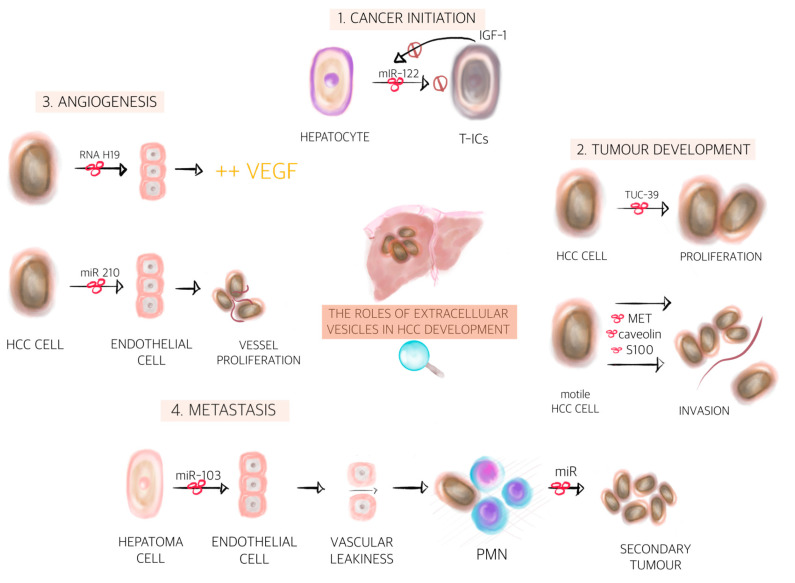Figure 2.
The roles of extracellular vesicles in hepatocellular carcinoma development. Extracellular vesicles are involved in many stages of carcinogenesis and represent important key-players among normal cells, tumour cells and the tumour microenvironment. We illustrate the most important steps of primary liver cancer development mediated by extracellular vesicles, as follows: (1) cancer initiation (transformation or blockage of the hepatocytes into tumour cells); (2) tumour development (proliferation + invasion); (3) angiogenesis (synthesis of vascular endothelial growth factor and vessel proliferation); and (4) metastasis (inducing vascular leakiness, thus facilitating invasion and formation of the pre-metastatic niche and finally leading to secondary tumours) [134,136,138,139,148,149]. Abbreviations: IGF-1, insulin growth factor-1; T-ICs, tumour initiating cells; miR, microRNA; HCC, hepatocellular carcinoma; S100, soluble proteins 100; VEGF, vascular endothelial growth factor; PMN, pre-metastatic niche.

